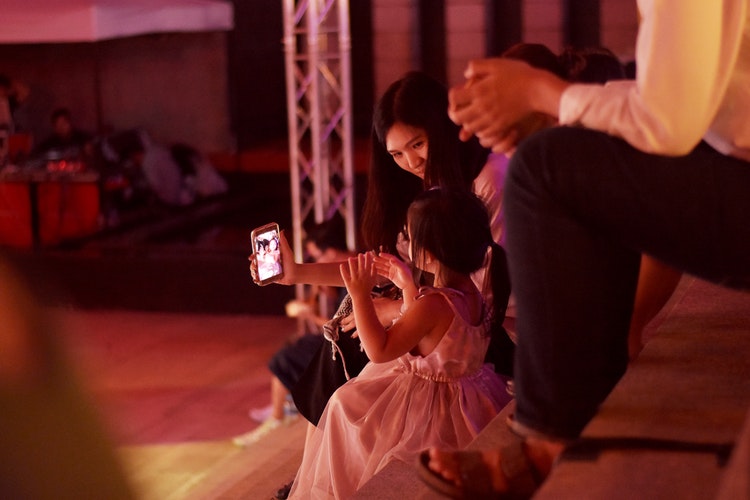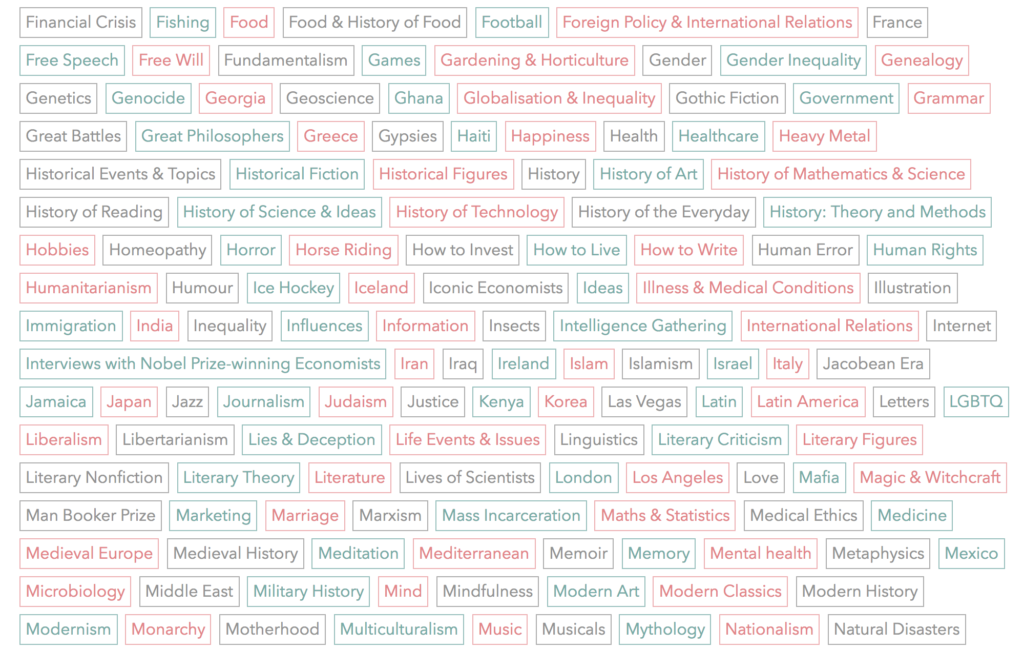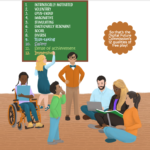
If you have been reading my Mindful Digital Life Friday posts for a while, you know that I recommend creating a weekly family practice of conversations about technology. Over time, these conversations can build essential skills needed today for a mindful digital life—inward facing skills such as self-reflection and self-monitoring, and outward facing skills such as investigation, fact-checking, curation. What key ingredients are necessary for these conversations to succeed? Curiosity, an open mind, and highlighting the awesome as much as identifying the challenges will go a long way in building the trust levels necessary for deeper conversations to flourish.
I’ve been reading filmmaker Delaney Ruston’s Tech Talk Tuesdays blog (I encourage you to subscribe here) since I first attended a screening of her film Screenagers at a local Bay Area middle school a few years ago. Delaney offers weekly conversation starters that I have found very useful. I look forward to her post landing in my inbox.
I started Mindful Digital Life because I began to notice in my educational consulting practice conflict between parents and children and teens about technology was really escalating.
In this week’s Tech Talk Tuesdays post, Delaney begins by calling out some statistics from a Common Sense Media survey. She writes:
I find this statistic staggering: thirty percent of adults and the same percentage of youth report that they argue daily about screen time at home. That is millions of kids, teens, and parents fighting every single day about screen issues and many millions more who fight often, though not daily.
Later in the post, Delaney invites readers to think about a possible “silver lining” to such arguments based on research she’s been doing recently on parent-teen conflict:
Research shows many benefits that teens get when they have productive arguments with parents. Healthy, productive arguing, from the teen perspective, is when the parents listen well to their claims and will change rules at times based on good sound input from the teens.
Last, she proposes two questions for parents to help shift the conversation toward “productive arguing.”
What are things you argue about regarding tech?
When are your arguments productive — when do they work for you vs. when are they just downright annoying, repetitive, etc.?
A weekly technology conversation can be a great container to practice productive arguing. As disagreements arise this week, hold these questions close.
Looking for more? Read these posts I wrote earlier in the year about weekly tech conversations, the film Screenagers, and Tech Talk Tuesdays:
Here’s an invitation: Are you practicing weekly technology conversations? If you’re not, would you like to begin? Write me (use the form here) and I’ll schedule a video call with you to discuss.

Speaking of curation: The new Scout Report pointed me to Fivebooks, a beautiful project based in London by a small group of dedicated folks. Here’s what the Scout Report has to say about Fivebooks.
What are the five best books to read if you want to learn more about Henry VIII? Which five books exemplify the best of comic writing? What about the five best contemporary Scandinavian novels? Five Books has a simple premise: “We ask experts to recommend the best five books in their subject and explain their selection in an interview.” The project is based in London and features a U.S. editor; thus, most (but not all) interview participants hail from these countries. Interviewees include authors, academics, entertainers, and public intellectuals. New interviews are released twice a week. Visitors can check out the latest and most recent interviews on the site’s homepage and browse previous interviews by subject tags. While those looking for a new read or hoping to brush up on a particular subject or genre may be most attracted to the lists on this page, the interviews also offer an opportunity for readers to learn more about a variety of writers and thinkers.
In the Best Books for Kids and Teens section of Fivebooks, be sure to check out The Best Science-based Novels for Children recommended by Alom Shaha, a teacher, filmmaker, and science communicator.
Upcoming events (ONLINE)
Parenting Adventures in the Digital Realm—From Surviving to Thriving
June 20, 1–2 pm PDT
I’ll be facilitating this online workshop in June with Parents Place Marin. We’ll focus on the skills needed today to create Mindful Digital Life in the family. I hope you can join us. Register here.


